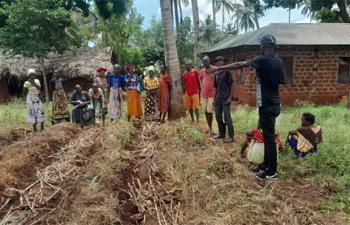The construction industry is one of the most polluting industries in the world. Easy Housing is striving for a world where everyone has access to a safe, sustainable home. Easy Housing is a Ugandan social enterprise that builds affordable and sustainable houses in Uganda in collaboration with local construction partners and the local population. With support from DOEN, they can scale up production in Uganda and eventually expand to other African markets. They expect to have built a total of 1,500 homes within five years.
Circular wooden homes
The construction industry has a hugely negative impact on our planet and the climate, due to its use of polluting (fossil) building materials. There is also a lot of deforestation in East Africa for such purposes as agriculture and illegal logging for export. Easy Housing provides an answer to this with a scalable, affordable and flexible solution in the form of circular wooden homes.
This is how it works
Easy Housing offers different types of homes varying from from a one-bedroom studio to a three- or even four-bedroom property. They are made from sustainable, local wood and other alternative bio-based building materials. The houses are prefabricated in a local workshop and then assembled and finished on site like a jigsaw puzzle.
The impact of an Easy Home
One Easy Home saves an average of 26 tonnes of CO2 by avoiding carbon storage and cement. By using FSC-certified wood, 7,000 m2 of forest is protected. In addition, twenty jobs are created per house, for painters, electricians and plumbers, among others. And each house means that five people can live in a decent climate-proof home.



